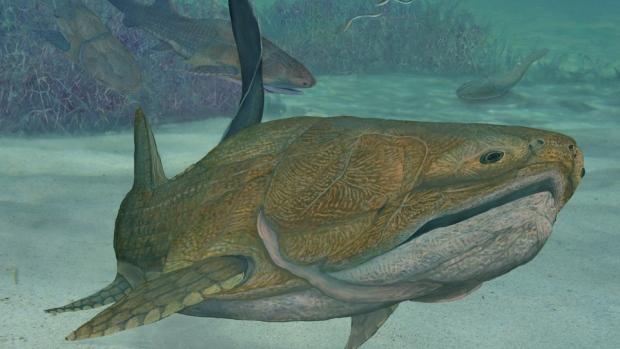In China, a fish fossil was found that could dramatically shift history.
The fossil, which scientists say is of a 419-million-year-old fish, “disproves the long-held theory that modern animals with bony skeletons (osteichthyans) evolved from a shark-like creature with a frame made of cartilage,” reports Phys.org.
While it is often thought that many animals and humans evolved from bony frames from scratch, the new find of this primordial fish fossil shows that a bony skeleton was in fact the prototype for all vertebrates, a group of researchers wrote in the journal Nature.
“This astounding discovery does throw a spanner in the works of some long-held ideas about vertebrate evolution,” said study co-author Brian Choo from the Institute of Vertebrate Palaeontology and Palaeoanthropology in Beijing.
“The implications are clear: ostheichthyans did not independently acquire their bony skeletons, they simply inherited them” from their ancestors—heavily-armoured fish known as placoderms that are accepted to be the most primitive members of the jawed vertebrate family,“ said said Choo. ”Osteichthyans didn’t go through an unarmoured shark-like... stage during their early evolution only to reacquire their bone later on, they simply kept the plates directly from their... ancestors.”
John Long, a professor in palaeontology at Flinders University in Adelaide, told Reuters that the discovery “finally solves an age-old problem about the origin of modern fishes.”
“We now know that ancient armored placoderms gave rise to the modern fish fauna as we know it,” said Long, who was not part of the team in China.






Friends Read Free